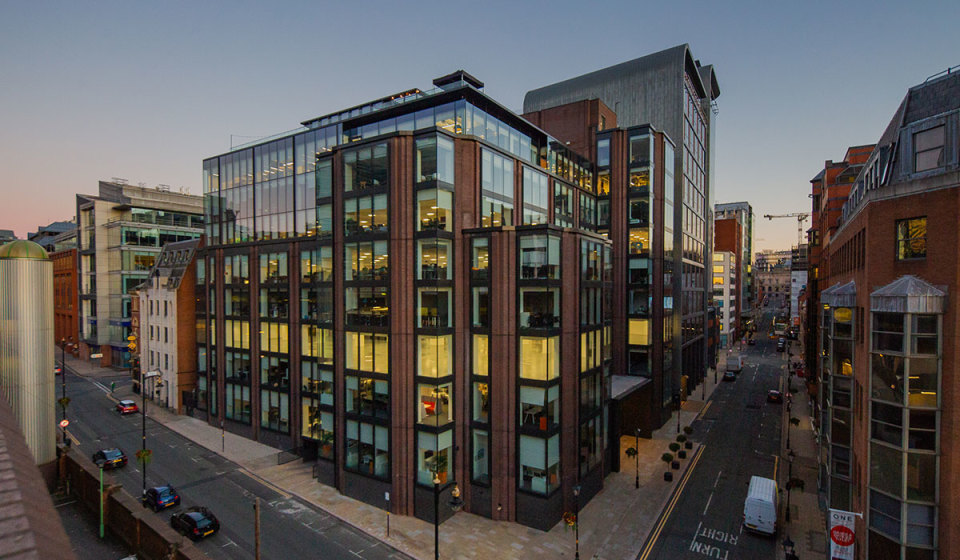What is the future role of the office?
By Bruntwood

It is the question on everyone’s lips - what is the future role of the office, both in the short and long-term? Rob Valentine, Director of Birmingham at Bruntwood Works, explored this topic alongside fellow panelists at an event held by BPS Birmingham earlier this month, called ‘The Future Role of the Office’. The event was held prior to the local lockdown coming into force in the region. The debate, chaired by Tim Rayner, Real Estate Partner at Irwin Mitchell solicitors, saw panelists asked when we expect to see people return en masse to the office, and the barriers that were currently stopping this. Rob was joined by fellow panelists Philip Twiss, Senior Associate and Design Director, Gensler Birmingham and Alex Tross, Director - Head of Office Advisory at Lambert Smith Hampton (Birmingham) in giving his views. The trio identified issues such as the limitations of public transport, with discussions around how most people who work in a city rely on public transport, which many people are still avoiding. And family requirements, such as people needing to protect older relatives, as well as young children having school and nursery closures have meant that people have had to stay at home. The reopening of schools is expected to have a big impact on returning office numbers, however with staggered drop off times, office employers will need to adapt to more flexible working patterns. The panel was asked how they thought office spaces will work in the future and where the value lies for organisations who are looking to invest in office space, now that firms have embraced technology and new, more flexible working patterns that are likely to stay in place beyond the pandemic. Tim expressed his thoughts around offices being ‘more than bricks and mortar; they’re about people’, with Rob adding that ‘offices are a key element in attracting, nurturing, and retaining talent’. Philip added his view that ‘the office is where you can foster a company culture’. Rob agreed, stressing that it is ‘the place where an organisation's culture and the ‘why’ behind your organisation is expressed and instilled’. “When it comes to nurturing and mentoring young and emerging talent, nothing can replace the power of ‘information and culture osmosis’ Rob said, explaining that these are “the things you overhear, the reactions you witness, the last-minute meetings you get invited to attend. “That powerful osmosis environment only happens when people are together, and to do that you need an office”. Indeed, this view is echoed by Bruntwood Works customer Ramboll, whose Director of Birmingham, James Willis, described the office as “irreplaceable”. James, whose company has an office at Cornerblock in the city, is increasing his office space as he is growing his team. “There are so many reasons why we need an office,” he said. “We use our office space to collaborate - as humans, we are conditioned to respond to people’s body language, something which just can’t be replicated virtually. “And in a wider sense, we use it to attract, retain and develop talent. All team members work off their leads to some extent - they look at the language they use and how they work day-to-day. It is all absorbed and quite often, we don’t even realise we’re doing it. This is invaluable in building up our teams, and ensuring that our staff feel listened to and happy.” The panel expressed a unanimous view on the importance of company culture from a brand and mentoring perspective, exploring how when employees feel connected to the people they work for and the ambitions and aims of the company, good things happen. “Working from home when you have an established network and relationships with peers, customers and external contacts that help support not only the daily needs of your role but also your future opportunities, can leave people feeling isolated,” Rob said. “For those early on in their career or new to an organisation it is impossible to build those sorts of connections and relationships without being physically present to establish them.” The panel agreed that a ‘people-centric’ approach is key. The welfare of staff needs to be considered; the benefits and drawbacks of working from home or in the office will differ between generations in a single team, and all must be considered. Eliminating the office entirely is not an option for those companies who genuinely value the welfare of staff (physically, mentally and financially), its culture and nurturing talent. The future of the office “will be focused on quality”, explained Rob. “An office space should go beyond desks and act as a physical location that serves a multitude of needs - both functional and and in terms of amenity. “Going forwards, people will want flexible, multi-purpose space.” For more from Rob, follow him on Twitter on @RobValBruntwood
Stay Connected!
Sign up to our newsletter for the latest news, updates and offers.